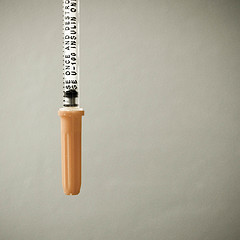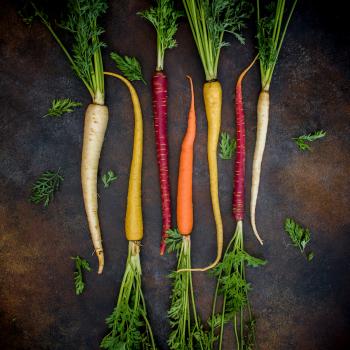Continued from yesterday.
 When the editors of Good Letters first asked if they could rerun my 2011 post on my sugar addiction, which was posted yesterday, I couldn’t even bring myself to read the old post before saying no. I felt too weird and vulnerable about what I’d written and preferred that it stay buried in the archives. So I wrote other stuff, until I found myself coming back around to this topic in my life. Addictions don’t tend to go away. They are either active or in remission, rarely cured.
When the editors of Good Letters first asked if they could rerun my 2011 post on my sugar addiction, which was posted yesterday, I couldn’t even bring myself to read the old post before saying no. I felt too weird and vulnerable about what I’d written and preferred that it stay buried in the archives. So I wrote other stuff, until I found myself coming back around to this topic in my life. Addictions don’t tend to go away. They are either active or in remission, rarely cured.
A new twist for me: Weeks after I wrote that original post, I had some medical tests done and got a new diagnosis and learned that in fact I’m a type one diabetic, not type two as originally pegged. Type one is an autoimmune disease and typically has an onset in childhood or adolescence, but it can also hit people much later in life, as it did me. Once properly diagnosed, I got some basic training on how to calculate and inject insulin and was on my way.
I remember leaving the doctor’s office that day with my insulin prescription. At the same time, my doctor warned me not to change the good eating and exercise habits I’d cultivated when I’d thought lifestyle changes were my only hope. “Oh no, no, of course not,” I said while thinking: holy moly now I can eat pasta, and I just want to go home and fall into a pan of mac and cheese and watch twelve hours of Netflix. I had been so “good” and so careful, a poster girl for the benefits of paleo eating and boot camp workouts.
Which type of diabetes I have is neither here nor there when it comes to my eating disorder, but having boxes of insulin sitting in my fridge does change my relationship with it. Now if I binge, I can stick a needle in myself to mitigate the long-term consequences of high blood sugar that I wrote about in my original post.
Insulin, in a strange way, became grace for me. I can be imperfect. I can give in to my compulsive eating and sedentary wormholes and still come up with a blood sugar number good enough to allow me to stand righteous before my doctor at the next checkup.
However, the rest of the consequences of my eating disorder are still in play. The self-hatred, the depression, the body anxiety, the fear of being discovered, the isolation, the way addictions and compulsions inevitably and indefinitely delay the living of life—insulin doesn’t help any of that.
Moreover,insulin introduces the new fear of getting hit by a dangerously low blood sugar in the night if I’ve been off in calculating how much to take. I could actually die in my sleep if I make an extreme error; it’s not an uncommon way for diabetics to go.
I was thinking I’d draw some further spiritual metaphor here about how grace is great but—though saved from ultimate destruction—we still suffer other consequences of our sin, and that seems like it should compel us toward change.
But that’s not where my mind is. It’s back to my father and his drinking and my ever-deepening understanding of how torturous it must have been for him to watch himself lose everything to this substance while surrounded by others who seemed to be able to enjoy it without repercussions.
Every time I see someone casually leave a half-eaten cookie or piece of pizza around, I boggle at how they can do that, how they can carry on a conversation as if a delicious carb delivery system isn’t sitting there, available.
Maybe that’s how my dad felt about friends who could stop at one or two drinks. Maybe the various suggestions by those who loved him about how to not be an alcoholic made him feel angry and misunderstood. I get that, too. (“If it’s agave, it’s okay!” “Go paleo again!” “Be vegan.”“Everything in moderation. Except kale.”)
Drinking is social.It’s pleasurable. It allows you to check out or feel a sense of belonging or laugh or cry. I could say the same about certain kinds of foods, and being one of the people for whom it’s an all-or-nothing game really sucks. It feels unfair and impossible to negotiate when you’re living in a world that is constantly giving you cues to partake of the thing that gives you the biggest high and at the same time causes you the most misery.
Where I used to resent my father so much for not being able to choose a life over a drink, now I think it’s miraculous that anyone ever gets and stays clean and sober from whatever they are seeking to be clean and sober of—booze or drugs or food or sex, or the more innocent-looking highs of pride and self-righteousness.
There’s a tenet in the Alcoholics Anonymous literature that says, “We’re no better or worse than anyone else.” I like that a lot, and it seems in line with the message of the Christian gospel. I think my dad struggled with believing the “no worse than” part of it, while I might resist the “no better than” aspect. For a long time, I truly believed I was better than he was.
Now, as much as I hate my addictions and diseases, I sometimes find myself thanking God for them in part because they relieve me of this delusion—about my dad or anyone else.
I still feel weird and vulnerable. I considered pulling the plug on this post as well as the old one, and in fact never writing about anything personal again other than in fiction.
But for me, increasing the chance that my addictions will spend more time in remission than in being active means talking about them. To paraphrase I Corinthians 12: It’s more fun to be weird and vulnerable together than alone.
Sara Zarr is the author of five novels for young adults, most recently The Lucy Variations, which the New York Times called “an elegant novel.” Her sixth, a collaborative novel with Tara Altebrando, came out December 2013. She’s a National Book Award finalist and two-time Utah Book Award winner. Her books have been variously named to annual best books lists of the American Library Association, Kirkus, Publisher’s Weekly, School Library Journal, the Guardian, the International Reading Association, the New York Public Library and Los Angeles Public Library, and have been translated into many languages. In 2010, she served as a judge for the National Book Award. In fall 2014, she received a MacDowell Colony Fellowship. She currently lives in Salt Lake City, Utah, with her husband, and online at www.sarazarr.com.
Photo above credited to Jill Brown and used under a Creative Commons license.










